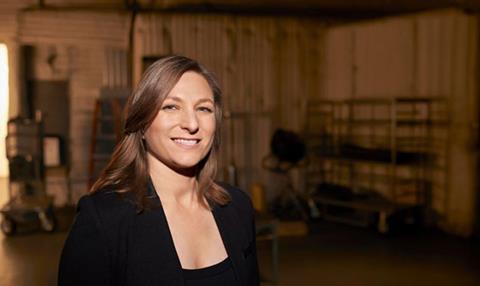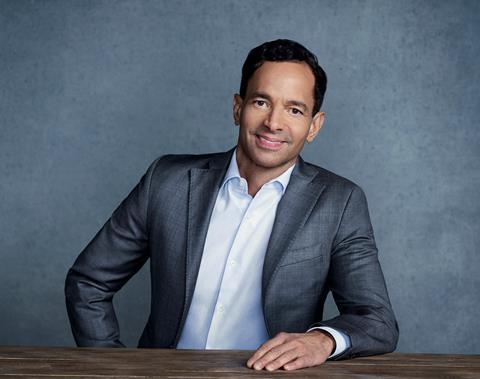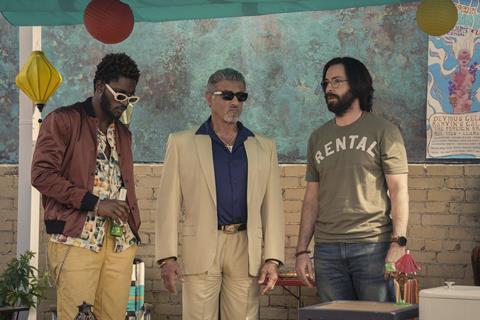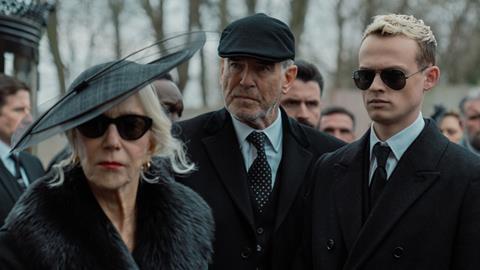David Ellison has moved quickly in his first seven days in charge of the US giant, but what have we learned and what questions remain?
If it feels like Paramount has been dominating the headlines over the past week, it’s because it has.
Rewind just ten days and the long-gestating deal had still not even formally wrapped, more than a year after it was first confirmed that Skydance had agreed a ‘definitive agreement’ to merge with the Hollywood giant.
Since then, we’ve had an outline of how the new entity will operate, confirmation of the key execs involved – as well as those who won’t be – plus a $7.7bn (£5.7bn) pact for UFC rights and talk of a shock deal with the Duffer brothers. Oh, and Paramount stock has soared by more than 25%.
Repositioning the narrative
While the process to create the $8bn entity was delayed and befuddled by internal and external politics, the main goal for newly installed chief exec David Ellison is to project a clear vision from here on in.
Ellison has certainly had plenty of time to prepare, evidenced by a three-pronged business that was unveiled before the deal had formally wrapped, comprising Cindy Holland’s streaming unit; George Cheeks’ TV arm; and, Josh Greenstein and Dana Goldberg’s studio division.
Two US-based press events have also provided more detail on how the company will look to operate, with its session this week in LA allowing execs such as Holland to explain her vision for the streaming side of company.
Top billing was given to Taylor Sheridan’s programming that stretches from the Yellowstone universe to Tulsa King and Lioness, which she described as providing a “great foundation” for Paramount+.

But both Holland and Ellison talked up the role of content at the new-look Paramount, with the chief exec explaining he would be looking to “significantly scale” investment in shows.
Holland also noted she would require more programming (but not films) “to get the required engagement” from viewers, and underlined Paramount+’s international ambitions by stating her aim to engage global audiences.
For producers outside of the US, this seems to bode well. The former Netflix originals chief, who also worked at Sister, knows the international production world well and will be well-aware of the benefits that cost-efficient programming produced outside of the States can offer.
Just how Paramount+ will look like this time next year remains to be seen though, while it seems a combination of sorts will take place with ad-supported Pluto TV increasing its role as a funnel to Paramount+’s subscription tiers.
Cuts and synergies
Such a move could perhaps help Ellison to reach the $2bn of savings the company is looking to make, with Paramount+ and Pluto TV set to use the same back-end tech from 2026.
But tech efficiencies will only go so far and with content spending set to increase, there will inevitably be cuts elsewhere. Ellison has already outlined “labour, real estate, procurement and workflow” as areas where he is looking to cut costs, fitting his desire for a “leaner, faster, smarter, and more agile company”.

AI has been talked up, with Ellison noting “virtual production stages that unleash filmmakers’ limitless imaginations” and “AI-assisted localisation that brings shows to new language markets overnight.”
And while he added that technology “is not and never will be a replacement for human creativity”, instead serving as a “powerful multiplier”, job cuts are inevitable.
Shell confirmed there would be layoffs at Paramount, which employs around 18,000 people, adding that redundancies would be handled in one fell swoop and not dragged out every quarter, although he declined to elaborate on timings.
Ellison has also been consistent in his talk of a “long-term” vision for Paramount, but intriguingly the notion of following rivals such as Warner Bros Discovery and NBCUniversal in carving out cable networks into separate entities has already been dismissed.
Paramount’s TV chief, George Cheeks, admitted it was a “super challenging business” but confirmed his clutch of networks – ranging from MTV, Nickelodeon and Comedy Central – would not be offloaded, with suggestions that Paramount’s networks provide a different appeal and role to its Hollywood rivals.
Shell also added that BET would also not be sold, following an attempt to divest the division under the former regime
International operations
Unsurprisingly, Ellison and his team have focused much of their attention to date on US operations, with little detail emerging as to plans for Paramount’s interests elsewhere once the dust settles post-merger.
Some questions have been answered: former NBCUniversal exec Kevin MacLellan is reuniting with ex-colleague Shell to take on a broad remit that includes both non-US networks and distribution, with former licensing chief, Dan Cohen, departing earlier in the month.
MacLellan’s remit also includes oversight of Network 10 in Australia and 5 in the UK, the latter of which has been enjoying steady growth over recent years despite the machinations at its corporate parent, with content chief Ben Frow navigating a turbulent local production industry to maintain audience and returns.

5 is ultimately overseen by Sarah Rose, Paramount’s chief operating and commercial officer for broadcast, UK and international studios, and if previous comments are anything to go by, the cost-effective nature of Frow’s operations should bode well for international producers.
Talking in November last year, Rose said Paramount’s former US management team were “a tiny bit wide-eyed” at the amount of bang for their buck the PSB is returning and the hope is that a similar impression is made on MacLellan, Holland and co.
Bigger questions lie around the future of Network 10, which has struggled to stem declining audiences and reported a A$320m (£155m) loss last year. Just how the network can turn its fortunes is not clear, while it is also unclear how Ellison and co view SkyShowtime, the European streamer that Paramount launched three years ago with NBC Universal.
It is now available across swathes of Europe, including bigger markets such as Spain, the Nordics and Poland, offering both acquired programming and its own originals, while also making use of a steady flow of content from the Paramount mothership.
There are also questions around how Paramount’s new-look studio divisions will operate. Among Ellison’s first acts was to revive Paramount TV Studios, which was shuttered last year and will now sit alongside CBS Studios.
It will continue to be run by David Stapf, who reports into Cheeks, but the impact on CBS Studios’ international divisions is another area where changes will likely take more time to filter through. In the US, projects are reportedly being shared out between the two studio units, with shows under the Showtime/MTV Entertainment banner – including those from Taylor Sheridan such as Tulsa King – sitting under Paramount TV Studios.
Fittingly, the latter is being run by Skydance alum Matt Thunnell, who worked with Holland during her stint at Netflix. It was also those two who worked on Stranger Things with the Duffer brothers, and with whom Paramount is now reportedly hoping to strike an overall deal.
Whether that particular headline was planned or not, it helped to underline that this week has belonged to Paramount. Numerous questions remain over how Ellison’s strategy will play out from here but from this week’s headlines at least, it seems this new-look Paramount could be a more strategic and canny operator than its predecessor.









No comments yet